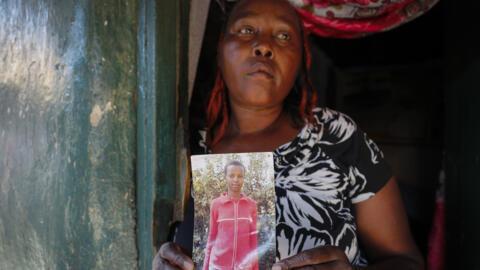Introduction:
A devastating series of shipwrecks off Libya’s coast has resulted in over 100 Sudanese refugees being reported dead or missing, casting a harsh light on the extreme dangers faced by migrants escaping conflict and economic hardship. According to RFI, these overcrowded boats capsized amid rough seas during desperate attempts to reach Europe, sparking a renewed humanitarian emergency. As rescue operations persist, this tragedy underscores the critical need for a coordinated global response to the ongoing migration challenges in North Africa and beyond.
Understanding the Human Cost: Sudanese Refugee Shipwrecks in the Mediterranean
The Mediterranean Sea is often seen as a passageway toward safety and opportunity; however, it has become an increasingly deadly route for vulnerable populations fleeing turmoil in Sudan. Recent incidents have tragically claimed or endangered more than 100 lives after multiple vessels sank near Libya’s shores. These heartbreaking events reveal not only the perilous nature of such crossings but also highlight systemic failures that leave refugees exposed to life-threatening risks.
Several factors contribute to this crisis: overcrowded boats lacking proper safety measures navigate turbulent waters under duress; meanwhile, restrictive maritime policies limit effective rescue efforts. The combination of these elements creates an environment where hope frequently turns into tragedy.
To fully grasp why so many risk these hazardous journeys, it is essential to examine key drivers behind this migration wave:
- Persistent Conflict: Ongoing civil wars and armed clashes continue displacing millions within Sudan.
- Economic Instability: Rampant poverty coupled with soaring unemployment compels individuals toward uncertain futures abroad.
- Targeted Persecution: Ethnic minorities and political dissidents face systematic oppression prompting flight.
Despite international awareness of these root causes, responses remain fragmented and insufficient. Survivors alongside humanitarian advocates are urging governments worldwide for enhanced accountability and decisive action aimed at preventing further loss of life. Prioritizing refugee protection through comprehensive strategies is now more urgent than ever.
Why Sudanese Refugees Risk Dangerous Sea Crossings
The volatile situation inside Sudan-marked by escalating violence and deteriorating living conditions-has forced countless people into making perilous decisions about their future. Several interrelated factors compel them toward hazardous maritime routes:
- Intensified Armed Conflicts: Increased hostilities have led to widespread human rights violations across various regions.
- Deteriorating Economic Conditions: Inflation rates soaring above 200% (as per recent World Bank data) have crippled household incomes.
- Erosion of Basic Services: Access to healthcare facilities, education systems, and security infrastructure has sharply declined amid instability.
For many refugees from Sudan, crossing the Mediterranean represents their final hope despite overwhelming dangers posed by smugglers exploiting porous borders along Libya’s coastline.
Key motivations include:
- Aspirations for Stability: Seeking refuge where they can rebuild lives free from violence or deprivation.
- Lax Border Controls at Sea: Smugglers capitalize on weak maritime enforcement allowing risky voyages with little oversight.
- Lack of Safe Alternatives: Limited legal migration pathways force reliance on irregular channels fraught with danger.
| Main Indicators | LATEST DATA (2023-2024) |
|---|---|
| Total Number of Sudanese Refugees Since 2020 | Around 1.6 million* |
| Migrants Dead or Missing at Sea Near Libya (2023) | An estimated 110+ |
| Total Annual Shipwreck Incidents Off Libyan Coastline | Tens documented yearly* |
*Figures sourced from UNHCR reports as of mid-2024
Urgent Recommendations for Improving Migrant Safety & Humanitarian Aid
In response to these tragic losses among Sudanese migrants attempting sea crossings towards Europe, there is an immediate call for strengthened measures addressing both prevention and relief efforts:
The international community-including governments, NGOs, regional bodies-must enhance maritime safety protocols by improving coordination between naval forces responsible for search-and-rescue missions across Mediterranean waters. Establishing clearly defined safe corridors dedicated exclusively to vulnerable asylum seekers could drastically reduce fatalities during transit.
Additionally,sufficient emergency support services should be deployed at key departure points along North African coasts , offering medical aid alongside information campaigns warning against dangerous smuggling networks.
The plight faced by refugees stranded within countries like Libya demands expanded humanitarian assistance focused on improving shelter conditions while safeguarding fundamental human rights through sustainable development programs.
A crucial component involves advocating robust legal frameworks facilitating orderly migration processes that dismantle exploitative trafficking rings profiting off desperation.
This approach requires close collaboration with local civil society organizations possessing nuanced understanding about refugee needs – enabling tailored interventions that respect cultural contexts while maximizing impact.
Conclusion: Key Insights on Libyan Shipwreck Tragedies & Path Forward
The recent spate of fatal shipwrecks near Libya starkly illustrates how treacherous journeys undertaken by thousands fleeing conflict zones like Sudan continue unabated-with devastating consequences exceeding one hundred lost souls reported missing or deceased.
These incidents demand urgent global attention not only towards immediate rescue operations but also long-term solutions tackling root causes such as armed conflict resolution efforts inside origin countries combined with expanded access routes ensuring safe passage without risking lives at sea.
As policymakers convene around migration challenges globally in 2024-including upcoming UN summits-the imperative remains clear: protect human dignity above all else through comprehensive strategies prioritizing refugee welfare over restrictive deterrence tactics alone.
Though vast oceans separate continents physically today-the shared humanity behind every migrant story calls us collectively toward empathy-driven policies designed so no more families endure needless heartbreak chasing elusive hope across dangerous waters.

